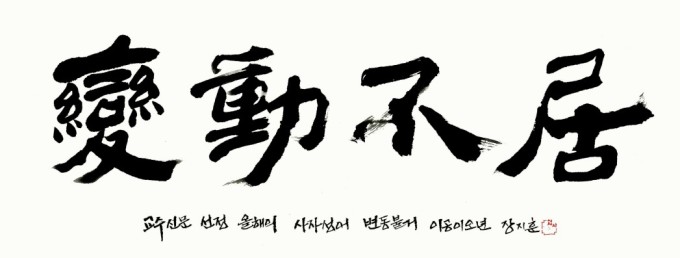
남도인문지성예술학예제가 낙안군문화보존회 주관-주최로 지난 9월28일 오후3시30분 순천시 낙안초등학교 체육관에서 열렸다.
홍가이 전 미국 MIT 교수(박사)는 이 학예제에서 “거시 역사시각에서 본 한창기(1936-1997. 전 뿌리깊은 나무 발행인) 민예운동의 역사적 의의와 중요성”이란 제목으로 특별 강연을 했다.
아래는 이 강연의 요약문이다
거시 역사시각에서 본 한창기(전 뿌리깊은 나무 발행인) 민예운동의 역사적 의의와 중요성
-홍가이 전 미국 MIT 교수(박사)
한창기(전 뿌리깊은 나무 발행인)의 연구는 한국 문화의 본질에 대한 혁명적인 전환을 제시한다. 그의 통찰은 한국의 진정한 문화적 정체성이 지배계층인 양반 문화가 아닌, 보통 사람들의 일상생활 속에서 발견된다는 것이다. 수세기 동안 양반 계층은 소수의 엘리트로서 중국을 문화의 중심으로 여겨왔다. 그들은 중국의 풍습, 문학, 제도를 수입하여 자신의 것으로 만들었고, 이 범주 밖의 문화를 무가치하거나 심지어 '문화'가 없다고 여겼다. 양반들에게 중국 문화는 세련됨의 정점이었고, 그들 자신은 이를 모방하는 것에 지나지 않았다.
그러나 한창기의 발견은 혁명적이었다. 그는 엘리트들이 모방하는 외래적 가치를 지양하고, 대신 한국 인구의 대다수를 차지하는 보통 사람들에게 주목했다. 양반들이 무시하던 '문화가 없다'고 여겼던 이 보통 사람들의 일상 속에는 오랜 세월 동안 잊혀져 온 풍부한 전통과 관습, 삶의 방식이 존재했다. 한창기는 그들의 삶 속에서 한국의 진정한 문화적 정체성을 발견한 것이다.


한창기의 이러한 통찰은 단순한 연구 이상의 의미를 지닌다. 그는 지배계층이 중국을 모방하려는 과정에서 잃어버린 한국의 정체성을, 보통 사람들의 삶에서 되찾아냈다. 이는 한국의 문화적 정체성을 소수 지배층이 아닌 다수의 민중들 속에서 찾는다는 의미에서 문화적 혁명이라 부를 만하다. 그리고 이 혁명은 한국 사람들의 전통, 창의성, 그리고 일상 속에서 발휘된 저력과 진정성을 새롭게 정의하는 것이었다.
또한, 한창기는 한국 여성들의 해방을 위한 캠페인의 일환으로 여성 잡지인 '물이 깊은 샘'을 창간했다. 조선 시대의 유교적 사상은 '남존여비'를 기본으로 하여, 한국 여성들은 수백 년 동안 억압받아 왔다. 이로 인해 한국 인구의 절반에 해당하는 여성들의 창의적 잠재력은 억눌린 채 발휘될 기회조차 없었다. 한창기의 '물이 깊은 샘'은 상업적 여성 잡지들과는 달리, 텔레비전에 등장하는 유명 여성 스타들이나 화려한 패션을 자랑하는 것이 아니라, 보통 한국 여성들의 삶을 다루는 데 중점을 두었다. 그는 보통의 아내이자 어머니인 여성들의 삶 속에서 억압된 창의성을 발굴하고, 그들의 잠재력을 해방시키기 위한 논의의 장을 열었다.
이렇듯 한창기는 지배계층이 아닌 평범한 사람들, 그리고 억압받아 온 여성들의 삶 속에서 한국의 진정한 문화적 정체성을 발견하고자 했다.
*아래는 위 기사를 '구글 번역'으로 번역한 영문 기사의 [전문]입니다. '구글번역'은 이해도 높이기를 위해 노력하고 있습니다. 영문 번역에 오류가 있을 수 있음을 전제로 합니다.<*The following is [the full text] of the English article translated by 'Google Translate'. 'Google Translate' is working hard to improve understanding. It is assumed that there may be errors in the English translation.>
Dr. Hong Ga-i gave a special lecture on the topic of “Deep-rooted Tree Publisher Han Chang-gi”
“The historical significance and importance of Han Chang-gi’s (former publisher of Deep-rooted Tree) folk art movement from a macroscopic historical perspective”
- Reporter Park Jeong-dae
The Namdo Humanities and Intellectual Arts Festival was held on September 28th at 3:30 PM at the Nakan Elementary School Gymnasium in Suncheon City, hosted and organized by the Nakan-gun Cultural Preservation Association. Former MIT professor (doctor) Hong Ga-i gave a special lecture at the festival titled “The historical significance and importance of Han Chang-gi’s (1936-1997, former publisher of Deep-rooted Tree) folk art movement from a macroscopic historical perspective.” Below is a summary of this lecture
The historical significance and importance of Han Chang-gi (former publisher of Deep-rooted Tree)’s folk art movement from a macro-historical perspective
- Hong Gai, former professor (PhD) at MIT
Han Chang-gi’s (former publisher of Deep-rooted Tree) research presents a revolutionary shift in the nature of Korean culture. His insight is that Korea’s true cultural identity is found not in the ruling class’s yangban culture, but in the everyday lives of ordinary people. For centuries, the yangban class, as a small elite, regarded China as the center of their culture. They imported Chinese customs, literature, and institutions and made them their own, and considered any culture outside this category to be worthless or even “cultureless.” For the yangban, Chinese culture was the pinnacle of sophistication, and they themselves were nothing more than imitators of it.
However, Han Chang-gi’s discovery was revolutionary. He rejected the foreign values that the elite imitated, and instead focused on the ordinary people who made up the majority of the Korean population. In the daily lives of these ordinary people, who were ignored by the yangban and considered to have no culture, there existed a rich tradition, customs, and way of life that had been forgotten for a long time. Han Chang-gi discovered Korea’s true cultural identity in their lives.
Han Chang-gi’s insight has a meaning beyond simple research. He recovered Korea’s identity, which the ruling class had lost in the process of imitating China, from the lives of ordinary people. This can be called a cultural revolution in the sense that he sought Korea’s cultural identity not in the minority of the ruling class but in the majority of the people. And this revolution was a redefinition of the traditions, creativity, and the power and authenticity displayed in the everyday lives of Korean people.
Han Chang-gi also founded the women’s magazine “Mul-geum-ip-saem” as part of a campaign for the liberation of Korean women. The Confucian ideology of the Joseon Dynasty was based on “male superiority and female inferiority,” and Korean women had been oppressed for hundreds of years. As a result, the creative potential of women, who account for half of the Korean population, was suppressed and had no opportunity to be expressed. Unlike commercial women's magazines, Han Chang-ki's 'Deep Water Spring' did not focus on famous female stars or flashy fashions that appeared on television, but rather on the lives of ordinary Korean women. He discovered the suppressed creativity in the lives of ordinary women who were wives and mothers, and opened a forum for discussion on liberating their potential.
In this way, Han Chang-ki sought to discover Korea's true cultural identity in the lives of ordinary people, not the ruling class, and oppressed women.
- Hosted by the Nakan-gun Cultural Preservation Society - Namdo Humanities and Intellectual Arts Festival






![[2025 유라시아부산국제아트페어] 신진작가 인터뷰② 후투티 '지역에서 시작한 힘찬 날갯짓'](https://www.bizhankook.com/upload/bk/article/202512/thumb/30891-75199-sample.jpg)
![[배양수의 Xin chào4] 베트남 홍득법은 여성의 지위를 높였는가?](https://www.aseanexpress.co.kr/data/photos/20251250/art_17651755576289_860208.jpg?iqs=0.6334539958278849)
![반클리프 아펠이 보석의 시간과 생명의 결을 접하는 방식 [더 하이엔드]](https://pds.joongang.co.kr/news/component/htmlphoto_mmdata/202512/08/f07063f0-9ed4-42af-8e5e-ea8c272b236c.jpg)